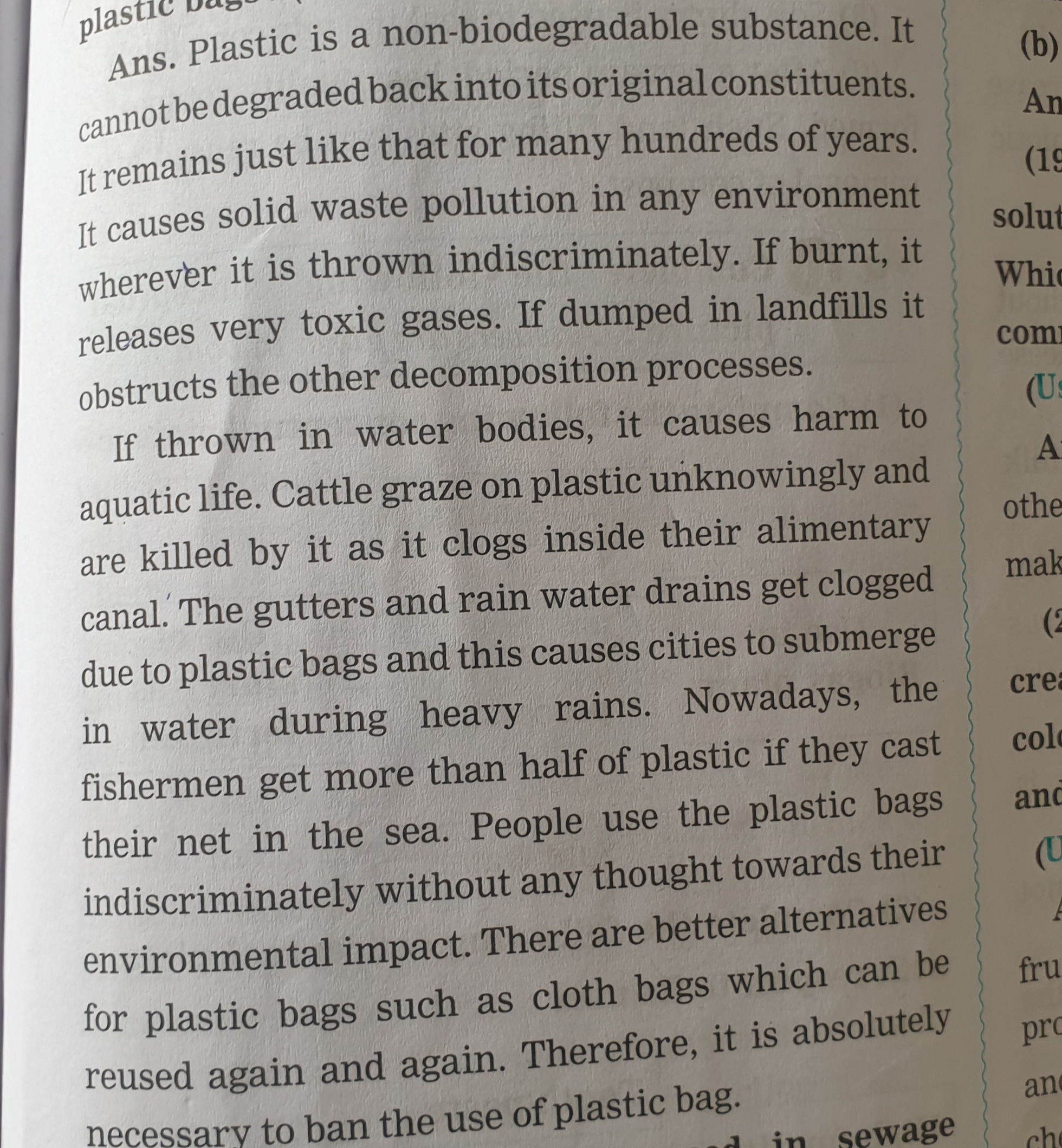What are the environmental impacts of plastic bags?

Understand the Problem
The excerpt discusses the environmental impact of plastic bags, outlining the harmful effects of plastic on ecosystems, particularly on aquatic life and solid waste pollution. It emphasizes the need for alternatives to plastic bags and the consequences of their indiscriminate use.
Answer
Plastic bags have severe environmental impacts, including pollution, toxic emissions, harm to wildlife, and obstruction of decomposition processes.
The final answer is that plastic bags have severe environmental impacts due to their non-biodegradable nature, causing solid waste pollution, toxic gas emissions when burnt, obstruction of decomposition processes in landfills, harm to aquatic life, and other harmful effects.
Answer for screen readers
The final answer is that plastic bags have severe environmental impacts due to their non-biodegradable nature, causing solid waste pollution, toxic gas emissions when burnt, obstruction of decomposition processes in landfills, harm to aquatic life, and other harmful effects.
More Information
Plastic bags are a significant environmental issue as they do not biodegrade, leading to long-term pollution, harm to wildlife, blockage of drains, and contribution to toxic emissions when incinerated. Alternatives like cloth bags can mitigate these impacts.
Tips
A common mistake is assuming that plastic bags quickly decompose or are harmless when burned. Both are incorrect; they take hundreds of years to break down and release toxic gases when incinerated.
Sources
- Environmental Impact of Plastic Bags - lochtree.com
- Plastic Bag Pollution - dpw.lacounty.gov
- The negative environmental effects of plastic shopping bags - ibanet.org
AI-generated content may contain errors. Please verify critical information